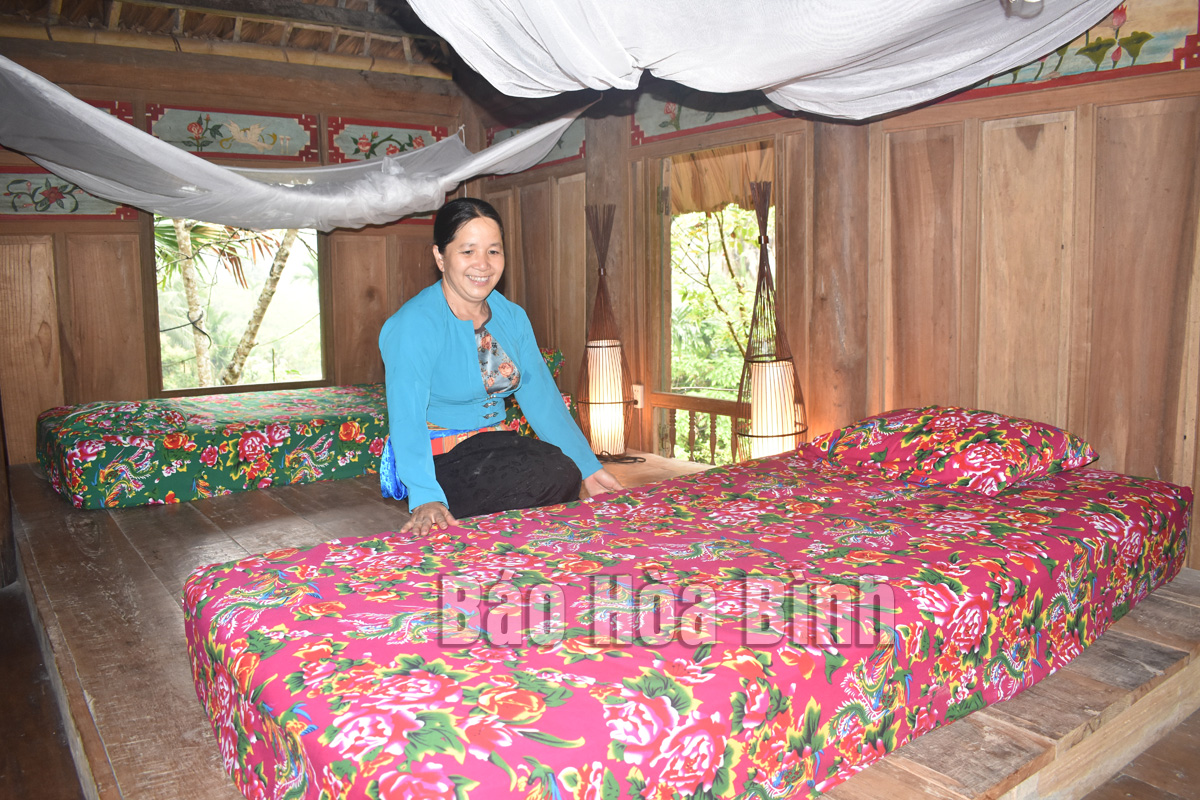(HBO) – During the first half of its term, the Party Committee of Tu Do commune (Lac Son district) has promoted the principle of democratic centralism, solidarity, and unity; and brought into play the collective leadership strength to realise the socio-economic development goals of the locality.
Exploiting local advantages, Quach Thi Thuc's
family in Mu Khuong hamlet, Tu Do commune (Lac Son district) invests in
homestayservices to attract tourists.
Thanks to the Party Committee’s directions, Tu Do commune has recorded positive
changes in the economic structure, with agro-forestry-aquaculture, small-scale
industry and construction, trade and other services respectively accounting for
75%, 0.6%, and 19% in the structure.
The annual state budget revenue has exceeded the set targets, and the per
capita income expanded through the years. The locality has focused on switching tohigh-value crops. The total
annual production of grain crops topped 1,123 tonnes in 2020, 1,170 tonnes in
2021, and nearly 1,171 tonnes in 2022, equivalent to 97%, 103.4%, and 103.61%
of the set targets, respectively.
The commune has so far completed 11 out of the 19 criteria of the national goal
programme on building new-style rural areas. Industrial production,
handicrafts, trade, and services have been expanded, contributing to generating
jobs for local labourers.
Attention has also been paid to upgrading and developing education
infrastructure facilities, and the quality of education managers and teachers
improved. The locality has also made great progress in education universalisation.
Meanwhile, the quality of community learning centres is being improved,
contributing to improving the education level of people, and developing
high-quality human resources.
Over the last three years, the locality also showed good performance in
providing initial healthcare services for locals, with over 2,700 people
receiving medical check-ups and treatment annually.
Bui Van Thuan, Deputy Secretary of the Party Committee of Tu Do commune, said
the locality strives to achieve a 12% average growth in the total
production value in the 2020-2025 period. Annual per capita income is
expected to reach 45 million VND (over 1,912 USD) while the average poverty
rate is targeted to decrease by 4% annually. The poverty rate is hoped to drop
to 26%, while 100% of the population is covered by health insurance by 2025.
To that end, the communal Party Committee has focused on mobilising all
resources, accelerating the shift of economic and labour structure in the
direction of industrialisation and modernisation; investing in infrastructure
development, and completing the criteria for new rural development.



